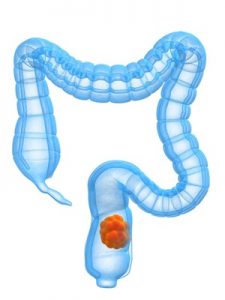Why Is Colon Cancer Increasing In Young Adults?
Author: Dr. Stephen Chaney
 A recent study on colorectal cancer reminds me of that famous Dickens quote: “It was the best of times. It was the worst of times.”
A recent study on colorectal cancer reminds me of that famous Dickens quote: “It was the best of times. It was the worst of times.”
The good news (best of times) is that colorectal cancer rates in the United States have been declining for several decades for adults over 50. The decline is attributed to a healthier lifestyle and better screening.
The bad news (worst of times) is that colorectal cancer rates are increasing at an alarming rate for young adults. We have also learned recently that heart attacks are increasing for young women.
These studies are a wake-up call. We need to be asking:
- Why are young people in our country dying from diseases that we traditionally associate with older adults?
- What can we do about it?
How Was The Study Done?
 This study (RL Siegel et al, Journal of the National Cancer Institute, 109 (8): djw322, 2017 ) was an analysis of data collected between 1974 and 2013 from a registry of cancer diagnoses called the Surveillance, Epidemiology, and End Results (SEER) Program. The data were collected from nine regions of the United States (Atlanta, Connecticut, Detroit, Hawaii, Iowa, New Mexico, Seattle-Puget Sound, San Francisco-Oakland, and Utah).
This study (RL Siegel et al, Journal of the National Cancer Institute, 109 (8): djw322, 2017 ) was an analysis of data collected between 1974 and 2013 from a registry of cancer diagnoses called the Surveillance, Epidemiology, and End Results (SEER) Program. The data were collected from nine regions of the United States (Atlanta, Connecticut, Detroit, Hawaii, Iowa, New Mexico, Seattle-Puget Sound, San Francisco-Oakland, and Utah).
In this study 490,305 patients 20 years and older developed colorectal cancer between 1974 and 2013. This study divided those colorectal cancer cases into 11 age groups (20-29, 30-39, 40-49, 50-54, 55-59, 60-64, 65-69, 70-74, 75-79, 80-84, and 84+). The study then compared colorectal cancer rates for each age group in 8 five-year time periods (1974-1978, 1979-1983, 1984-1988, 1989-1993, 1994-1998, 1999-2003, 2004-2008, and 2009-2013).
What Did The Study Show?
 When the investigators looked at the change in colon cancer incidence over time in different age groups, the results were quite alarming.
When the investigators looked at the change in colon cancer incidence over time in different age groups, the results were quite alarming.
- For adults age 20-29 colon cancer rates increased by 2.4% per year between the mid-1980s and 2013. While that doesn’t sound like much, 2.4% per year adds up. Colon cancer rates almost doubled between 1985 and 2013 for that age group.
- For adults age 30-39 colon cancer rates increased by 1% per year over that same time period. That’s a 25% increase between 1985 and 2013.
- By the mid-1990s colon cancer rates started increasing by 1.3% per year for the 40-49 age group and 0.5% per year for the 50-54 age group.
- The only good news was that colon cancer rates continued to decrease for adults aged 55 and above.
When the investigators looked at the change in rectal cancer incidence over time in different age groups the results were even more alarming.
- For adults age 20-29 rectal cancer rates increased by 3.2% per year between 1974 and 2013. That’s an almost 4-fold increase in rectal cancer for that age group.
- For adults age 30-39 rectal cancer rates increased by 3.2% per year between the mid-1980s and 2013. That’s about a 3-fold increase.
- By the 1990s rectal cancer rates started increasing by 2.3% per year for the 40-49 age group and the 50-54 age group.
- Once again, the only good news was that rectal cancer rates continued to decrease for adults aged 55 and above.
Why Is Colon Cancer Increasing In Young Adults?
 This study is a clear wake-up call. If colorectal cancer rates are increasing so dramatically in young adults, it does not bode well for them once they reach their 60s, 70s and beyond. This is an impending health crisis. We need to ask:
This study is a clear wake-up call. If colorectal cancer rates are increasing so dramatically in young adults, it does not bode well for them once they reach their 60s, 70s and beyond. This is an impending health crisis. We need to ask:
- Why this is happening?
- What can we do about it?
The simple answer to the first question is that no one knows for sure why colorectal cancer incidence is increasing in young adults. However, here is what experts think might be happening:
- Obesity is a prime suspect. The increase in colorectal cancer incidence in young adults closely parallels the obesity epidemic, and obesity is associated with an increased risk of colon cancer.
- Many of today’s most popular diets may just make matters worse. Fad diets promise rapid weight loss, but they may also increase the risk of colorectal cancer.
- Fad diets often restrict fruits, grains, and/or legumes. Plant based diets containing lots of fruits, vegetables, whole grains, and legumes are associated with a significantly lower risk of colorectal cancer. We have no evidence that we can leave out any component of a plant-based diet and still reduce colorectal cancer risk to the same extent.
- Fad diets often emphasize red meat as a protein source. The World Health Organization considers red meat as a probable carcinogen. The association between red meat consumption and cancer incidence is stronger for colon cancer than for any other cancer.
- Fad diets are often high in saturated fats, and saturated fat is associated with an increased risk of colorectal cancer.
- Finally, fad diets are often low in fiber. Low fiber diets alter our microbiome (gut bacteria), and recent research suggests our microbiome may play an important role in preventing colon cancer.
- The typical American diet is no better. It is high in red meat and saturated fats. It is low in fruits, vegetables, whole grains, legumes and fiber. Plus, it is high in sugar, sweets, and refined grains. With respect to colorectal cancer risk, it is the worst of all possible worlds.
- We don’t get enough folic acid, calcium and omega-3s in our diet. Those nutrients are associated with a lower risk of colorectal cancer.
- We don’t move enough. A sedentary lifestyle is also associated with an increased risk of colorectal cancer.
- Cigarettes and alcohol are associated with an increased risk of colorectal cancer. However, smoking and alcohol consumption have been declining in recent years, so they do not explain the increase in colorectal cancer we are seeing in young adults.
In summary, the authors of this study concluded: “These results highlight the need for…research to elucidate causes for the…increase in disease risk in young [adults], as well as creative new strategies to curb the obesity epidemic and shift Americans towards healthier eating and more active lifestyles.”
Colon Cancer Prevention
 If you are a young adult, you are probably wondering what you can do to reduce your risk of colorectal cancer. The good news is that we have a good idea of how to reduce the risk of colon cancer, and it works at any age.
If you are a young adult, you are probably wondering what you can do to reduce your risk of colorectal cancer. The good news is that we have a good idea of how to reduce the risk of colon cancer, and it works at any age.
Let’s start with the American Cancer Society recommendations for decreasing the risk of colorectal cancer. They are (with direct quotes from The American Cancer Society in quotation marks):
- Get screened for colorectal cancer. The American Cancer Society recommends that screening start at age 45. However, you may want to consult with your doctor about earlier screening if you have a family history of early-onset colon cancer, have blood in your stool, or develop bowel changes that last more than a few weeks.
- Eat lots of vegetables, fruits, and whole grains. According to the American Cancer Society: “Diets that include lots of vegetables, fruits, and whole grains have been linked with decreased risk of colon or rectal cancers.”
- Eat less red meat and processed meats. They “have been linked with an increased risk of colorectal cancer.”
- Get regular exercise. “If you are not physically active, you may have a greater chance of developing colon or rectal cancers.”
- Watch your weight. “Being overweight increases your risk of getting and dying from colon or rectal cancer.”
- Don’t smoke. “Long-term smokers are more likely than non-smokers to develop and die from colon or rectal cancer.”
- Limit alcohol. “Alcohol use has been linked with a higher risk of colorectal cancer.”
Other experts recommend:
- Limit saturated fats. Replace saturated fats with monounsaturated fats and polyunsaturated fats.
- Get plenty of fiber. That should be no problem if you are consuming a primarily plant-based diet containing lots of fruits, vegetables, whole grains and legumes.
- Make sure you are getting enough folic acid, calcium, and omega-3s. I recommend supplementation because even healthy diets often fall short of these nutrients.
I would add one final recommendation:
- Avoid fad diets that take you away from a healthy eating pattern (described above), one that is known to reduce colorectal cancer risk.
The Bottom Line
A recent study has reported an alarming increase in colorectal cancer incidence in young adults.
- For adults in the 20-29 age range, colon cancer incidence has increased 2-fold and rectal cancer incidence has increased 4-fold over the last few decades.
- Colon and rectal cancer incidence have also increased significantly for adults in the 30-39 and 40-49 age groups.
- The only good news from this study is that colon and rectal cancer incidence is continuing to decline for older adults.
This is a clear wake-up call. If this trend is not reversed, it does not bode well for these adults when they reach their 60s, 70s, 80s, and beyond.
For more details on what experts think is causing this alarming increase in colorectal cancer among young adults and what young adults can do to protect themselves from colorectal cancer, read the article above.
These statements have not been evaluated by the Food and Drug Administration. This information is not intended to diagnose, treat, cure or prevent any disease
